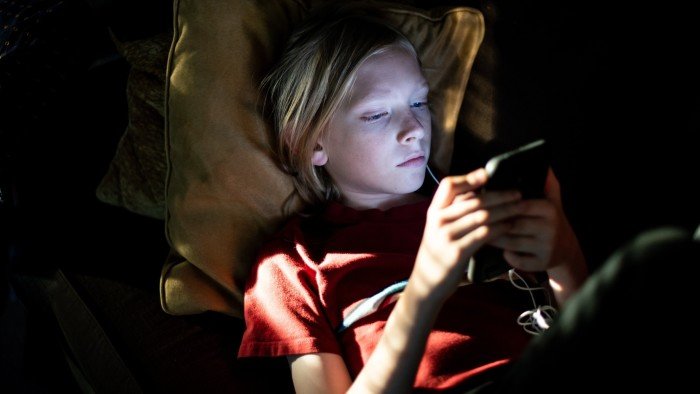Almost one-third of children show growing signs of addiction to mobile phones, social media and video games starting at age 11, according to a landmark study on the impact of modern technologies on the adolescent mind.
These young users are more likely to suffer mental health problems than peers who exhibit less compulsive behaviour patterns, according to research published in the Journal of the American Medical Association (Jama) on Wednesday.
The US study is a rare effort to capture multiyear trends in online behaviours and to assess potential links with poor mental health. It suggests bad outcomes are not associated with high screen time in itself, but with cravings, difficulty in stopping and interference with sleep, school or relationships, researchers said.
The findings will add to intense debate over the long-term effect of digital technologies, particularly for children whose brains are still developing and in an era when smartphones have become ubiquitous.
“Our study suggests that policy efforts should move away from generic limits on screen time and instead focus on identifying and addressing addictive patterns of screen use,” said Yunyu Xiao, the study’s lead author and an assistant professor at Weill Cornell Medicine/New York-Presbyterian.
“This challenges the prevailing narrative, which often equates more screen time with greater harm. In contrast, we found that it is how young people use technology — not how much — that matters most.”
The scientists looked at four years of data from the US Adolescent Brain Cognitive Development Study launched in 2016. The Jama paper examined survey results from 4,285 children who were aged 9 or 10 when the study started.
Just over 5 per cent of the children reported suicidal behaviours and almost 18 per cent reported suicidal thoughts by the fourth year of monitoring, the researchers found.
Participants with high and increasing addictive patterns of mobile phone, social media and video game use were at least 1.5 times more likely to report mental health problems than those with low addictive use levels.
Limitations of the study included that the data was subject to biases because it was self-reported and may have been influenced by the Covid-19 pandemic, the researchers said.
The research made a “powerful case” for delaying children’s exposure to addictive digital experiences until they were older and better equipped to manage them, said Daisy Greenwell, co-founder of Smartphone Free Childhood, a UK-based campaign group.
“Families are in an impossible position — trying to protect their children in a digital world built for adults, armed only with labyrinthine, often ineffective, parental controls,” she said. “It’s time for bold, population-wide action that shifts the norm, reduces harm and gives kids more time to grow and thrive free from addictive algorithms.”
The paper was “critical and timely”, said Professor Lisa Henderson, head of the psychology department at the University of York.
“We also need to determine the neurobiological and psychological mechanisms that underlie the relationships between addictive use and mental health outcomes,” Henderson said. “For example, converging evidence suggests that sleep disturbance may be a mediating mechanism here.”
